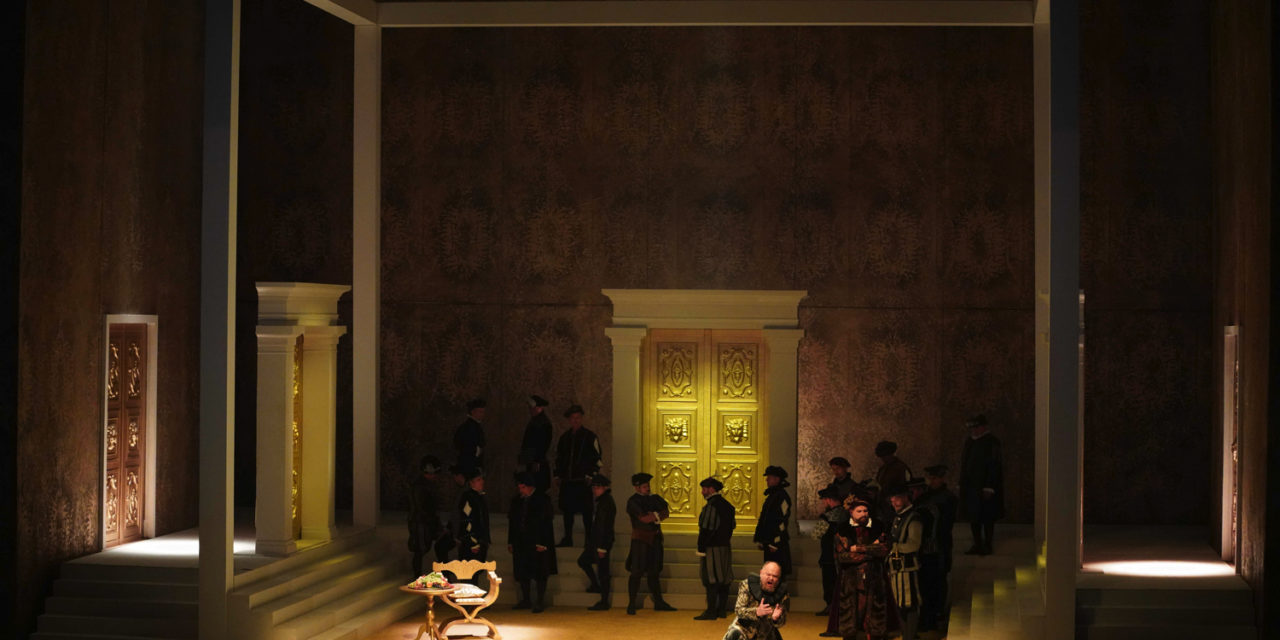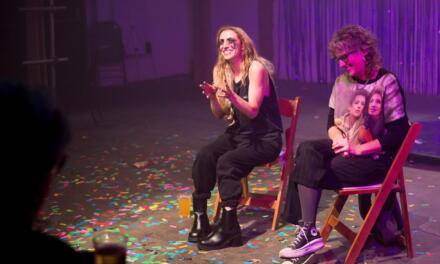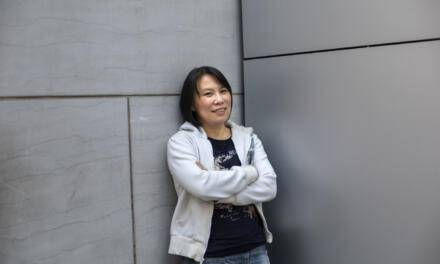The great success of Professor Paolo Bosisio as an opera director in Eastern Europe is confirmed with his staging of Rigoletto, by Giuseppe Verdi (1813–1901), which closed the season at the Teatr Wielki in Lodz, Poland, in June 2018. This is one of the most famous of Verdi’s operas, in three acts, with an Italian libretto by Francesco Maria Piave (1810–76) and based on the play Le Roi S’Amuse, by Victor Hugo (1802–85).
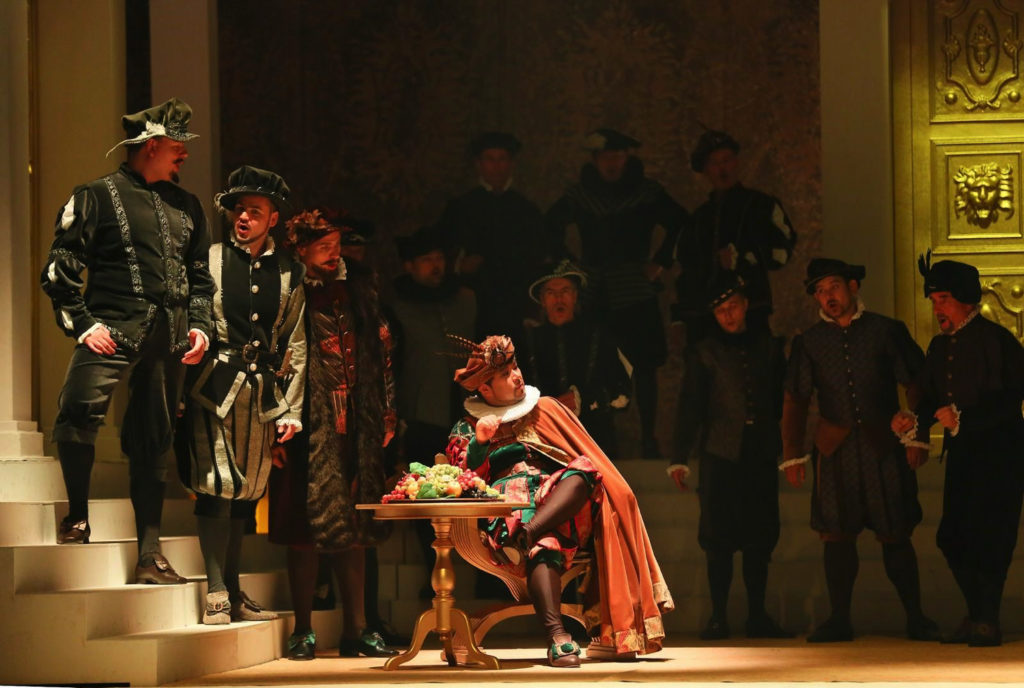
Rigoletto. Lodz (Teatr Wielki, June 2018), opera director Paolo Bosisio. Press photo.
The story is set in the 16th century, and the scenographer Domenico Franchi created a functional, but respectful, reproduction of the court of the Duke of Mantua. The beautiful costumes, by Zuzanna Markievitz, underlined the play’s historical value and the social differences between the characters. The deep emotional aspect of the staging was increased through the careful use of lighting, revealing the complex relationship between Rigoletto and his daughter, Gilda, and the psychological role of the Duke.
In his staging, Paolo Bosisio focused on the condition of orphanhood for Gilda: her sorrow at the death of her mother when she was a baby was counterbalanced by the devotion of her father–with his hidden work as a court jester and his desperation in response to his physical deformity. In his intimate suffering, Rigoletto tried to protect the girl from danger but finally had to admit that they were the victims of a curse. For many years he lived with his daughter in a sort of claustrophobia, but his efforts were useless: Gilda was protected at home but knew the illusions of life, suffering abandonment by her lover and dying for him.
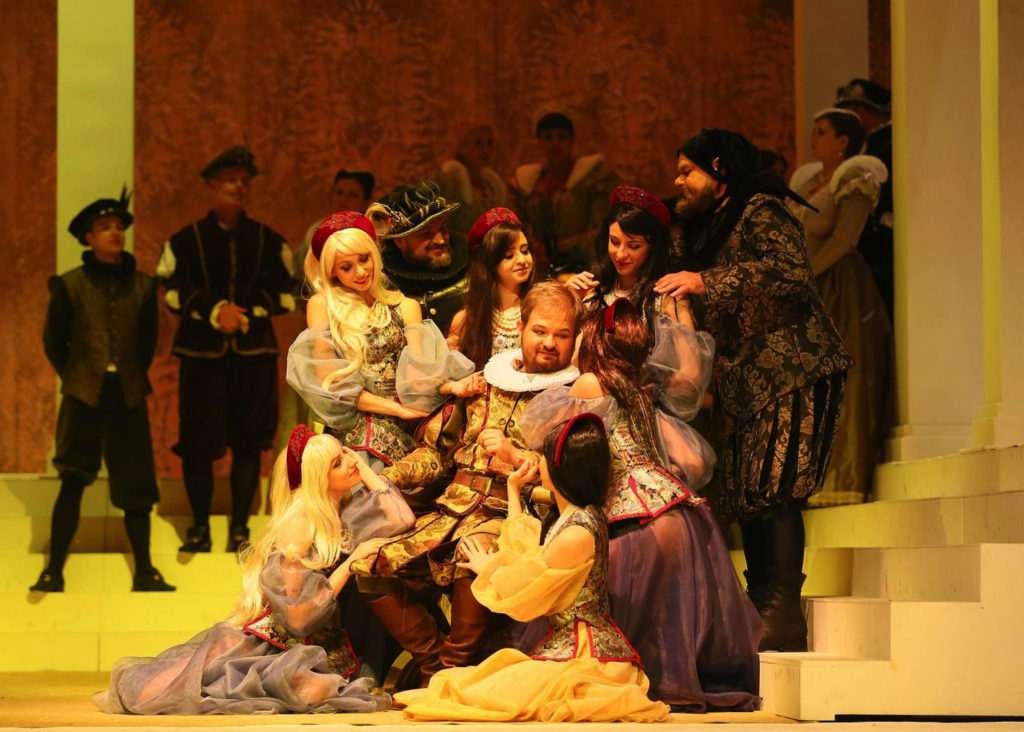
Rigoletto. Lodz (Teatr Wielki, June 2018), opera director Paolo Bosisio. Press photo.
The character of Rigoletto is defined by an alternation of strong feelings (rebellion, jealousy, revenge) as man and sweetness as father. His condition of court jester gives him the freedom to express his opinions and his disappointment with the power of noblemen, but–in the depths of his soul–he despises his work because he perfectly understands his condition of inferiority. For this reason, he also tries to present Gilda as his secret lover, and not as his daughter. But this “mask” is the reason for the plot’s tragic development.
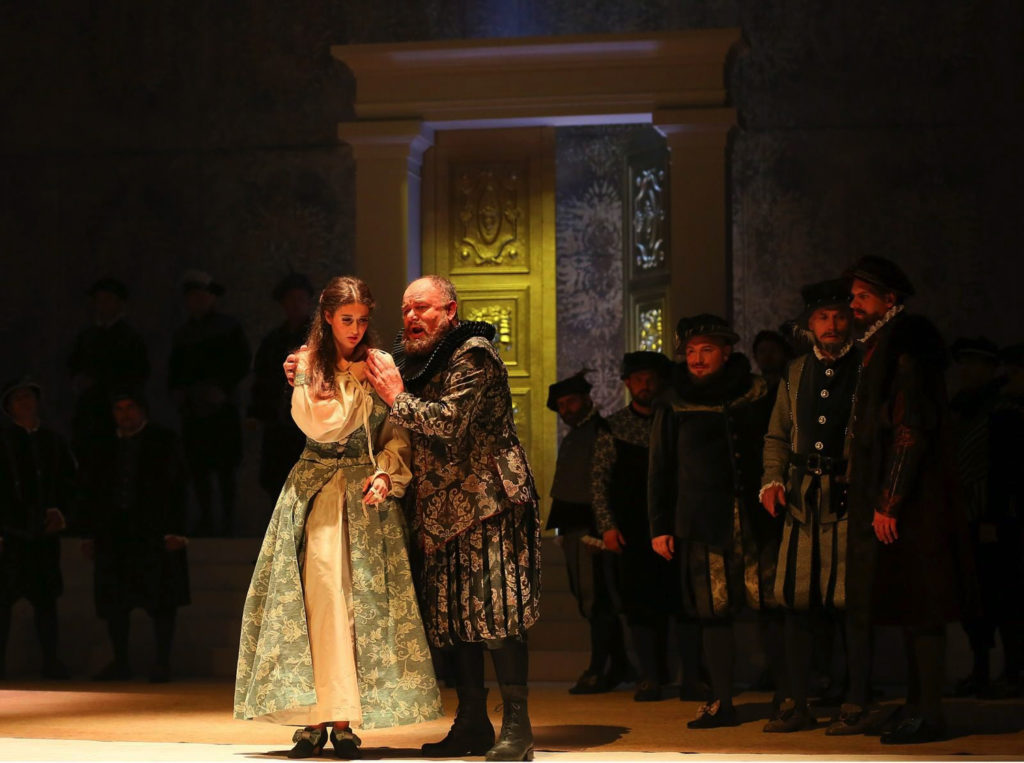
Rigoletto. Lodz (Teatr Wielki, June 2018), opera director Paolo Bosisio. Press photo.
The conductor Tadeusz Kozlowski was admired, as were the orchestra and the chorus. The impact of Verdi’s opera was enriched by the dramatic interpretation of the singing company: the baritone Zenon Kowalski was perfect in the role of Rigoletto with his contrasting feelings, and the young tenor Lukasz Zaleski was his antagonist in the role of the empty Duke. The young soprano Hanna Okońska was in her first performance as Gilda: her wonderful voice and her acting created an intense psychological portrait of the female protagonist–with her pure love without limits and her naivete which obstinately ignores the baser instincts. She experienced the true love of her father and the false love of her seducer, in a paradoxical situation ending with her total sacrifice.
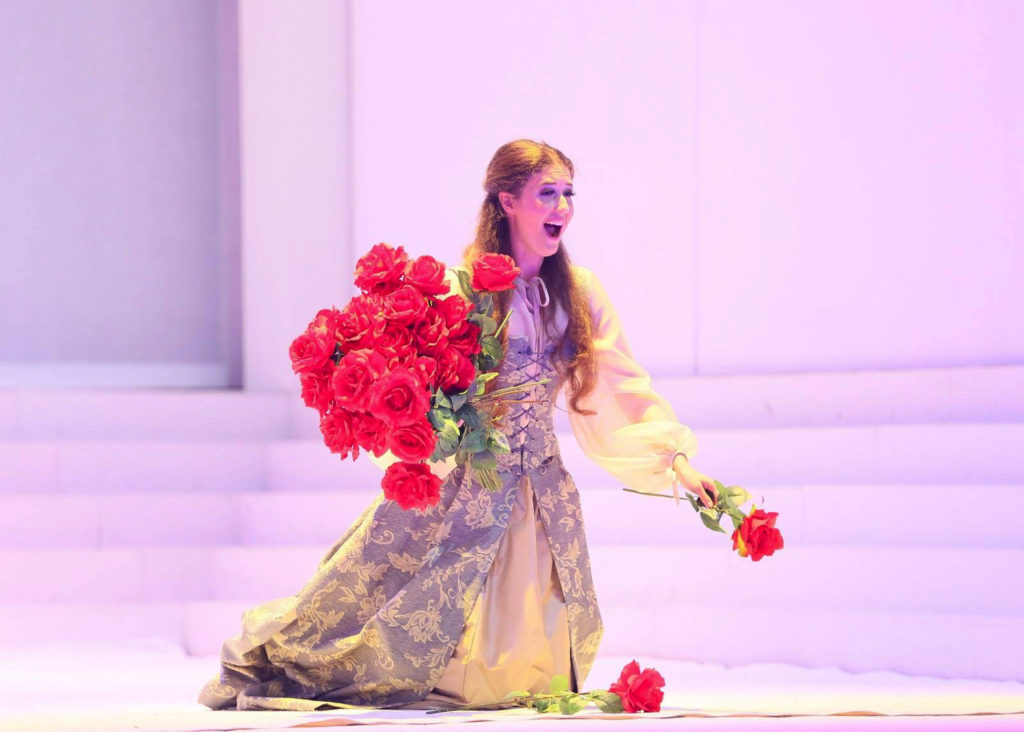
Rigoletto. Lodz (Teatr Wielki, June 2018), opera director Paolo Bosisio. Press photo.
The main characters were well supported by the other artists: the baritone Grzegorz Szostak, in the role of count Monterone; the bass Rafał Pikała, in the role of Sparafucile; his sister, Maddalena, played by the contralto Agnieszka Makówka; and Giovanna – Gilda’s nurse – played by the mezzo-soprano Agnieszka Białek.
With this Italian opera, Paolo Bosisio conquered the people of Lodz. This production is worthy of the highest praise and marks the fortune of Verdi in Eastern Europe, in the new millennium.
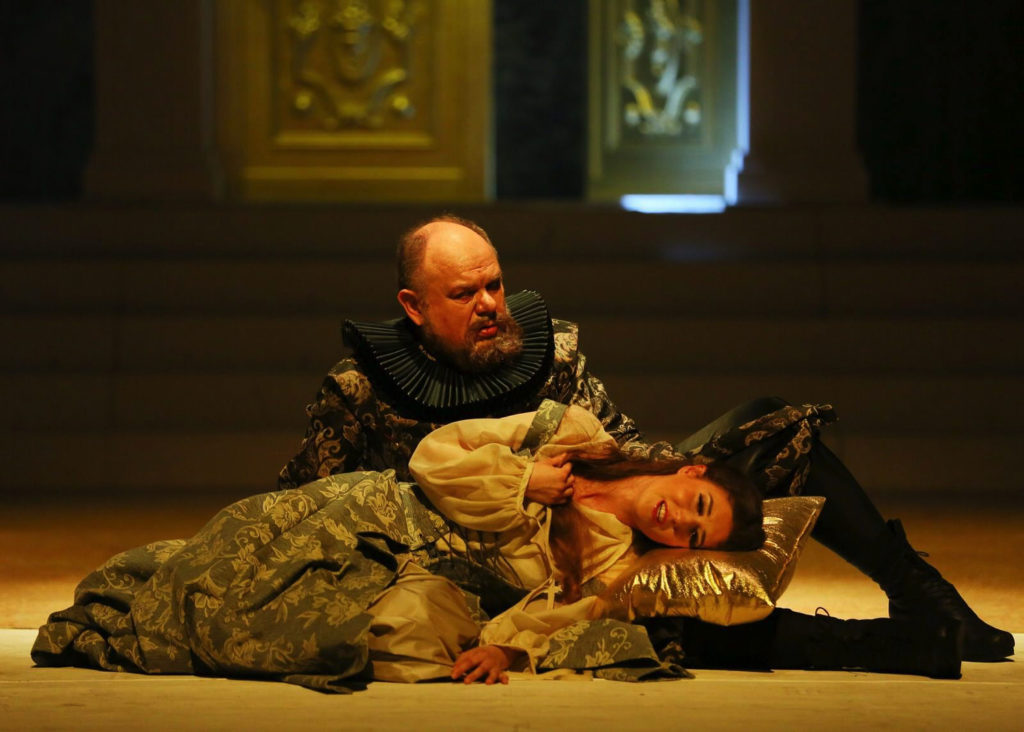
Rigoletto. Lodz (Teatr Wielki, June 2018), opera director Paolo Bosisio. Press photo.
This post was written by the author in their personal capacity.The opinions expressed in this article are the author’s own and do not reflect the view of The Theatre Times, their staff or collaborators.
This post was written by Maria Pia Pagani.
The views expressed here belong to the author and do not necessarily reflect our views and opinions.

